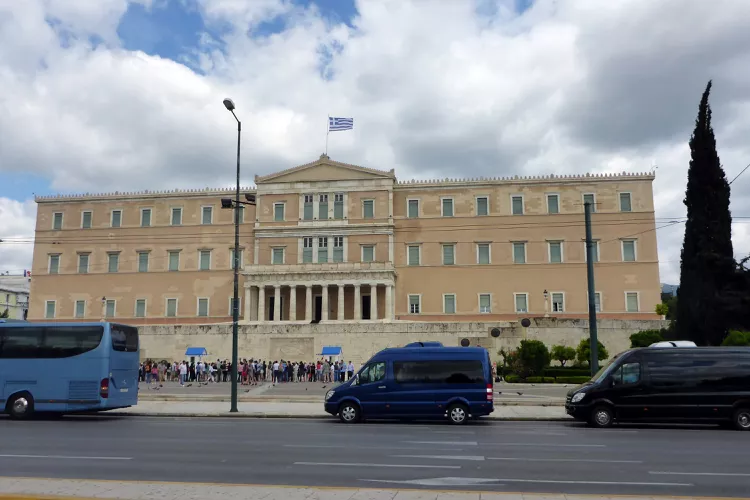Summary
Greece operates as a presidential parliamentary republic, according to its Constitution. The Prime Minister serves as the head of the government, while legislative powers belong to the Hellenic Parliament. This esteemed body consists of 300 Members of Parliament, each elected for a four-year term. Similar to the United States, Greece possesses a judiciary branch independent of its legislative and executive branches. The Hellenic Parliament is situated in the Old Royal Palace, the first royal palace of modern Greece, located at Syntagma Square in Athens.
Greece’s Parliamentary System
Parliament serves as the legislative branch in Greece, comprising 300 members elected through proportional representation by their constituents. To elect members of Parliament, a party must secure a nationwide vote tally of at least 3 percent. Consequently, Greece’s system diverges markedly from other parliamentary democracies such as the United Kingdom.
The President of the Hellenic Republic
The President is elected by Parliament and serves a five-year term, with the law limiting presidents to only two consecutive terms. Moreover, the president has the power to grant pardons and declare war; however, these actions require ratification by a parliamentary majority. The formal title of Greece’s president is the President of the Hellenic Republic.
Prokopios Pavlopoulos, commonly known as Prokopis, took office as the president of Greece in 2015. A lawyer and university professor by profession, Pavlopoulos had previously served as the country’s Minister of the Interior from 2004 to 2009. He succeeded Karolos Papoulias in this prestigious role.
In Greece’s parliamentary style of government, the Prime Minister holds the actual power, whereas the President assumes a primarily symbolic role as the head of state.
Prime Minister of Greece
The Prime Minister is the leader of the party holding the majority of seats in Parliament and serves as the chief executive of the government.
Alexis Tsipras, representing the socialist party, is the current Prime Minister of Greece. He initially served from January 2015 to August 2015, resigning when his Syriza party lost its majority. Following this, Tsipras called for a snap election in September 2015, where he regained the majority and was re-elected as Prime Minister after forming a coalition government with the Independent Greeks party.
Speaker of Greece’s Hellenic Parliament
Subsequent to the Prime Minister, the Speaker of Parliament, formally known as the President of Parliament, is the individual with the greatest authority in Greece’s government. The Speaker steps in as the acting president if the president is incapacitated or away on official government business. In the unfortunate event that a president passes away while in office, the Speaker carries out the duties of that office until a new president is elected by Parliament.
Nikos Voutsis, a prominent Greek politician who previously served as the Minister of the Interior and Administrative Reconstruction in Alexis Tsipras’s first cabinet, has occupied the role of Speaker of the Hellenic Parliament since October 2015.





